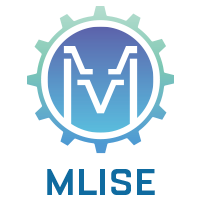
MLISE 2022
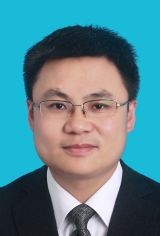
Prof. Jianjun Ni, Hohai University, China(IEEE Senior Member)
Experience: Jianjun Ni received the Ph.D. degree from the School of Information and Electrical Engineering, China University of Mining and Technology, Xuzhou, China, in 2005. He was a Visiting Professor with the Advanced Robotics and Intelligent Systems (ARIS) Laboratory, University of Guelph, Guelph, ON, Canada, from November 2009 to October 2010. He is currently a Professor with the College of Internet of Things Engineering, Hohai University, Changzhou, China. He has published over 100 papers in related international conferences and journals. His research interests include control systems, neural networks, robotics, machine intelligence, and multiagent systems. Dr. Ni also serves as an associate editor and a reviewer for a number of international journals.
Title: Cyanobacterial bloom prediction based on deep neural networks
Abstract: Cyanobacterial blooms are one of the most serious water pollution problems for freshwater lakes. The treatment of blooms requires a lot of material and financial resources, so an early accurate prediction of cyanobacterial blooms is a very important way to deal with the outbreak of them. But it is challenging to predict the cyanobacterial blooms due to the uncertainty and complexity of their growth process. To deal with these problems, we proposed two deep neural network-based methods. One is an improved attention-based bidirectional LSTM model for short-term cyanobacterial bloom prediction. Another one is an improved approach based on transfer learning, for cross-area cyanobacterial bloom prediction. And some experiments are carried out based on the real monitoring data in the Taihu Lake area. The results show that the proposed methods in our project have the highest prediction accuracy, compared with the other state-of-the-art deep learning methods.
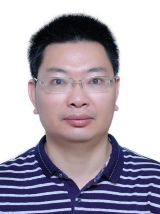
Prof. Xiaofang Yuan , Hunan University, China
Experience: Yuan Xiaofang, PhD, Professor in Hunan University, doctoral supervisor. He is mainly engaged in intelligent control theory and application, electric vehicle control and other aspects in automation. He has presided over more than 10 projects, including general projects of National Natural Science Foundation of China, youth projects of National Natural Science Foundation of China, special postdoctoral projects of China, science and technology plan of Hunan Province and Doctoral Program Fund of Ministry of Education. He has published more than 50 papers in IEEE Transactions and other international authoritative journals in the field of intelligent control theory and application, including 40 SCI index papers.
Title: Deep Learning-based Path Planning for Vehicles on 3D Map
Abstract: In the traditional vehicle area, energy-based motion control technology and battery technology usually use to solve the energy-saving problem. Our research proposes a new solution from the perspective of path planning. For vehicles traveling on the complex 3D terrains, the energy consumption of up-slope is far greater than that of the flat road and down-slope. To realize this, a path with a good trade-off between the energy consumption and distance would be the expected route for electric vehicle and mining transportation. A novel multi-objective path planning method is investigated to solve this problem for EV and mining truck. The simulation experiments prove that the proposed method can generate an optimal path which saves much energy in comparison with the path provided by the distance-based method.
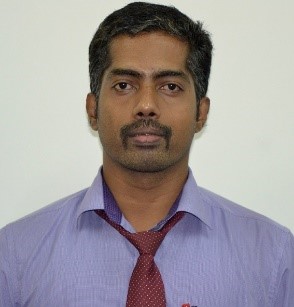
Prof. KANNIMUTHU SUBRAMANIYAM, Karpagam College of Engineering, India
Experience: Kannimuthu Subramaniyam is currently working as Professor in the Department of Computer Science and Engineering at Karpagam College of Engineering, Coimbatore, Tamil Nadu, India. He is also an In-Charge for the Center of Excellence in Algorithms. He is an IBM Certified Cybersecurity Analyst. He did PhD in Computer Science and Engineering at Anna University, Chennai. He did his M.E (CSE) and B.Tech (IT) at Anna University, Chennai. He has more than 15 years of teaching and industrial experience. He is the recognized supervisor of Anna University, Chennai. Two PhD candidate is completed their research under his guidance. He is now guiding 7 PhD Research Scholars. He has published 55 research articles in various International Journals. He published 2 books ("Artificial Intelligence" & “LinkedList Demystified-A Placement Perspective” and 3 Book Chapters (WOS / Scopus Indexed). He is acting as mentor / consultant for DeepLearning.AI, Hubino, MaxByte Technologies and Dhanvi Info Tech, Coimbatore. He is the expert member for AICTE Student learning Assessment Project (ASLAP). He has presented a number of papers in various National and International conferences. He has visited more than 75 Engineering colleges and delivered more than 127 Guest Lectures on various topics. He is the reviewer for 40 Journals and 3 Books. He has successfully completed the consultancy project through Industry-Institute Interaction for ZF Wind Power Antwerpen Ltd., Belgium. He has received funds from CSIR, DRDO and ISRO to conduct workshops and seminars. He has completed more than 610 Certifications (41 Specializations and 4 Professional Certifications) in Coursera, Hackerrank and NPTEL on various domains. He has guided a number of research-oriented as well as application-oriented projects organized by well-known companies like IBM. He is actively involving in setting up lab for Cloud Computing, Big Data Analytics, Open-Source Software, Internet Technologies etc., His research interests include Artificial Intelligence, Data Structures and Algorithms, Machine Learning, Big Data Analytics, Virtual Reality & Blockchain. One of his research works is incorporated SPMF Open-Source Data Mining Tool. Source: http://www.philippe-fournier-viger.com/spmf/index.php?link=algorithms.php. He Conferred Second Best Team in NLP Challenge as part of FIRE 2019 conference. He secured first Position in NLP Challenge as part of FIRE 2018 Conference.
Title: Artificial Intelligence Techniques for Industrial Data Science
Abstract: Digital manufacturing strategies are gaining ground as manufacturers adopt big data and analytics to improve operational effectiveness, time-to-market, new product development and increase product quality and reliability. Traditional, large-volume manufacturers often have one goal in mind—reduce costs associated with making high volumes of a single item by producing as many parts as possible in the shortest amount of time. That business model works for high-volume products, particularly if automation can be deployed, but it ignores innovation and the competitive edge created by digital manufacturing. The convergence of software and flexible manufacturing makes quick-turn prototyping and low-volume, on-demand production of custom parts fast and economical. In addition, digital manufacturers capture massive amounts of data across their business from the first customer engagement, through the sales and quoting process, and throughout the manufacturing and fulfillment processes. To take full advantage of all the information, understand the complexity of a high product mix and optimize business, companies need sophisticated analytics that cross business domains.
Data science, a vast discipline encompassing expertise in sophisticated math, engineering, and computer science techniques, typically involves using advanced analytics to mine insights out of data—data that informs business decisions, accelerates growth and improves customer experiences. Much of this data originates from the digital thread that starts with a customer’s first interaction with a digital manufacturer’s website and connects front-end software to automated fulfillment. The applications of data science to digital manufacturing are limitless. Real-time understanding of operational processes enables higher throughput and rapid pivots. Analyzing shop-floor sensor data lets manufacturers make compensating tweaks when quality veers from tolerance. Customer sentiment can be graphed to customized design and production. Supply-chain forecasts and delivery decisions can be optimized down to the individual stockkeeping unit and location level. This makes digital manufacturing one of the drivers of Industry 4.0, the union of physical and digital systems through complex software algorithms, artificial intelligence, machine learning and the network of smart industrial devices that comprise the industrial internet of things (IIoT).
So, how will digital manufacturers use data science in the future? Machine learning will be critical as companies race to find even better ways to serve customers. Analytics and machine learning will help digital manufacturers identify what capabilities customers will value including price, lead times, quality offerings and other options. Manufacturers that use analytics will enjoy a critical edge that will lead to growing their business.
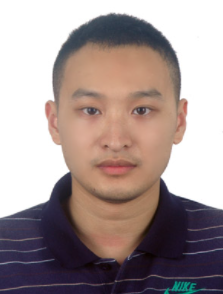
Assoc. Prof. Yin Long, Southwest University of Science and Technology, China
Experience: Dr. Yin Long is from Southwest University of Science and Technology. He was a guest fellow from University College London. So far, he has published more than 8 first-author papers on top IEEE series journals. He is awarded the Certificate of Appreciation as an Exemplary Reviewer by IEEE Signal processing society. He is a Guest Editor of several international journals. His current research interest includes manifold learning, sparse learning, non-convex optimization and its application on machine learning.
Title: Our progress on multiview clustering
Abstract: Clustering is a machine learning paradigm of dividing sample subjects into a number of groups such that subjects in the same groups are more similar to those in other groups. With advances in information acquisition technologies, samples can frequently be viewed from different angles or in different modalities, generating multiview data. Multiview clustering (MVC), that clusters subjects into subgroups using multiview data, has attracted more and more attentions. In this talk, we will disscus our progress on multiview clustering.